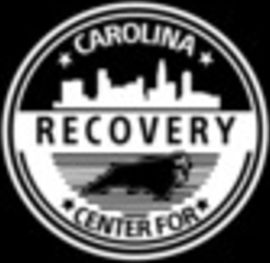








Carolina Center for Recovery
Verified Center
This provider's information has been quality-checked by Recovery.com's Research Team for accuracy and completeness, including center verification through appropriate third-party organizations.
Treatment Focus
This center treats substance use disorders and co-occurring mental health conditions. Your treatment plan addresses each condition at once with personalized, compassionate care for comprehensive healing.
Primary Level of Care
Offering intensive care with 24/7 monitoring, residential treatment is typically 30 days and can cover multiple levels of care. Length can range from 14 to 90 days typically.
Treatment Focus
This center treats substance use disorders and co-occurring mental health conditions. Your treatment plan addresses each condition at once with personalized, compassionate care for comprehensive healing.
Primary Level of Care
Offering intensive care with 24/7 monitoring, residential treatment is typically 30 days and can cover multiple levels of care. Length can range from 14 to 90 days typically.
Provider's Policy
Carolina Center for Recovery works with most insurance plans, which can cover 100% of treatment after your deductible is met. Our insurance experts provide a free, confidential benefit verification so you understand exactly what the costs of treatment would be at our facility (if any) and how to maximize your insurance benefits to get the best care possible.
Carolina Center for Recovery
Carolina Center for Recovery
About Carolina Center for Recovery
Carolina Center for Recovery helps people break free from addiction and start building a life they love again. They treat a wide range of substance use and co-occurring mental health challenges, meeting each person exactly where they are. With multiple levels of care including detox, residential treatment, and outpatient programs, clients can move through recovery at their own pace.
Join a Community that Feels Like Family
As a family-owned facility, their mission is about connection and belonging. Every client is welcomed into an environment where they’re truly seen and guided by a team that treats them like family. The staff—many of whom are in recovery themselves—bring compassion and decades of expertise to every interaction. Treatment is highly individualized, blending evidence-based therapies with alternative practices to address the deep emotional roots beneath the addiction.
Reconnect with Nature and Self
Just ten minutes north of Charlotte, Carolina Center for Recovery offers a peaceful, retreat-like setting on 23 acres of private land. The campus features wide green fields, picnic tables, and outdoor hangout areas where clients can relax and build connections. A full on-site gym gives opportunities for movement and strength-building. Surrounded by nature yet close to the city, the facility gives clients the best of both worlds.
Keep the Connection Going
Aftercare at Carolina Center for Recovery is all about helping clients build a life they’re proud of after treatment. Aftercare includes continued therapy, support groups, and case management to help clients stay connected as they step back into everyday life. The alumni program keeps that sense of belonging strong, with weekly in-person meetings, virtual options for those out of town, and fun events throughout the year.

Highlights from the Center
Highlights
These highlights are provided by and paid for by the center.
Holistic Approach
Family Owned & Operated
Medically Assisted Detox
All Services On-Site
Center Overview
Treatment Focus
This center treats substance use disorders and co-occurring mental health conditions. Your treatment plan addresses each condition at once with personalized, compassionate care for comprehensive healing.
CARF Accredited
CARF stands for the Commission on Accreditation of Rehabilitation Facilities. It's an independent, non-profit organization that provides accreditation services for a variety of healthcare services. To be accredited means that the program meets their standards for quality, effectiveness, and person-centered care.
Recently helped 5 people via Recovery.com

Carolina Center for Recovery
Recently helped 5 people via Recovery.com
Insurance Accepted
Cash Pay Rates
Estimated Cash Pay Rate
Center pricing can vary based on program and length of stay. Contact the center for more information. Recovery.com strives for price transparency so you can make an informed decision.




Recovery.com Verified Listing
Recovery.com verified that the name, location, contact information and license to operate for this treatment provider are valid and up-to-date.

Licensed by North Carolina

NAATP Member

CARF Accredited
Recovery.com is an independent, third-party mental health resource. Verification does not imply endorsement and does not guarantee the quality of treatment services.
Meet Your Care Team

Russ Guccio
CEO and Co-Founder

Taylor Hart
COO

Chris Doyle
Managing Partner

Ryan Ledoux
Executive Director

Dr. Edward Mogabgab
MD
Chief Medical Officer

Sahil Talwar
Psychiatric Physician Assistant

Alex Doyle
Director of Billing

Brian Banelli
Director of Admissions

Ashley Ledoux
Director of Business Development & Marketing

Daniel Hearne
Director of Operations

Randy Diaz
Clinical Director
MS, LCAS, CSI

Kelly Yarborough
Program Director

Frank Kolansinski
Family Program Manager

Dan Doyle
Facility Manager

Mandy Welsh
Behavioral Health Tech Supervisor

Richard Derderian
Operations Coordinator

Audrey Kluge
Behavioral Health Tech / Alumni Coordinator

Rey Culler
Yoga & Wellness Instructor
RYT-200

Brandon Belfer
Caterer
Your Care Options
Specializations
Alcohol
Using alcohol as a coping mechanism, or drinking excessively throughout the week, signals an alcohol use disorder.
Detox
Detox fully and safely removes toxic substances from the body, allowing the next steps in treatment to begin with a clean slate.
Benzodiazepines
Benzodiazepines are prescribed to treat anxiety and sleep issues. They are highly habit forming, and their abuse can cause mood changes and poor judgement.
Co-Occurring Disorders
A person with multiple mental health diagnoses, such as addiction and depression, has co-occurring disorders also called dual diagnosis.
Family Involvement
Providers involve family in the treatment of their loved one through family therapy, visits, or both–because addiction is a family disease.
Opioids
Opioids produce pain-relief and euphoria, which can lead to addiction. This class of drugs includes prescribed medication and the illegal drug heroin.
Prescription Drugs
It's possible to abuse any drug, even prescribed ones. If you crave a medication, or regularly take it more than directed, you may have an addiction.
Residential
In a residential rehab program, patients live onsite, with access to daily treatment and 24-hour care. An average stay is 30-90 days.
Who We Treat
Men and Women
Men and women attend treatment for addiction in a co-ed setting, going to therapy groups together to share experiences, struggles, and successes.
Treatment Services
Day Treatment
In a PHP, patients live at home but follow an intensive schedule of treatment. Most programs require you to be on-site for about 40 hours per week.
Detox
Detox fully and safely removes toxic substances from the body, allowing the next steps in treatment to begin with a clean slate.
Intensive Outpatient Program
In an IOP, patients live at home or a sober living, but attend treatment typically 9-15 hours a week. Most programs include talk therapy, support groups, and other methods.
Outpatient
During outpatient rehab, patients attend a structured treatment program while continuing to live at home.
Residential
In a residential rehab program, patients live onsite, with access to daily treatment and 24-hour care. An average stay is 30-90 days.
Transitional Living
After rehab, some people stay in a transitional living situation before returning home. These programs offer structure, education, and community support.
Approaches
Evidence-Based
A combination of scientifically rooted therapies and treatments make up evidence-based care, defined by their measured and proven results.
Individual Treatment
Individual care meets the needs of each patient, using personalized treatment to provide them the most relevant care and greatest chance of success.
Personalized Treatment
The specific needs, histories, and conditions of individual patients receive personalized, highly relevant care throughout their recovery journey.
Therapies
1-on-1 Counseling
Patient and therapist meet 1-on-1 to work through difficult emotions and behavioral challenges in a personal, private setting.
Meditation & Mindfulness
A practiced state of mind that brings patients to the present. It allows them to become fully aware of themselves, their feelings, and the present moment.
Trauma-Specific Therapy
This form of talk therapy addresses any childhood trauma at the root of a patient's current diagnosis.
Mindfulness Therapy
This ancient practice can be mental, emotional, and even spiritual. In meditation, you focus your attention on the present moment without judgement.
Attachment-Based Family Therapy
ABFT is a trauma-focused therapy that teaches you to form healthy relationships by rebuilding trust and healing attachment issues formed in childhood.
Art Therapy
Visual art invites patients to examine the emotions within their work, focusing on the process of creativity and its gentle therapeutic power.
Eye Movement Therapy (EMDR)
Lateral, guided eye movements help reduce the emotional reactions of retelling and reprocessing trauma, allowing intense feelings to dissipate.
Conditions We Treat
Grief and Loss
Grief is a natural reaction to loss, but severe grief can interfere with your ability to function. You can get treatment for this condition.
Personality Disorders
Personality disorders destabilize the way a person thinks, feels, and behaves. If untreated, they can undermine relationships and lead to severe distress.
Anger
Although anger itself isn't a disorder, it can get out of hand. If this feeling interferes with your relationships and daily functioning, treatment can help.
Anxiety
Anxiety is a common mental health condition that can include excessive worry, panic attacks, physical tension, and increased blood pressure.
Bipolar
This mental health condition is characterized by extreme mood swings between depression, mania, and remission.
Depression
Symptoms of depression may include fatigue, a sense of numbness, and loss of interest in activities. This condition can range from mild to severe.
Post Traumatic Stress Disorder
PTSD is a long-term mental health issue caused by a disturbing event or events. Symptoms include anxiety, dissociation, flashbacks, and intrusive thoughts.
Stress
Stress is a natural reaction to challenges, and it can even help you adapt. However, chronic stress can cause physical and mental health issues.
Trauma
Some traumatic events are so disturbing that they cause long-term mental health problems. Those ongoing issues can also be referred to as "trauma."
Substances We Treat
Alcohol
Using alcohol as a coping mechanism, or drinking excessively throughout the week, signals an alcohol use disorder.
Benzodiazepines
Benzodiazepines are prescribed to treat anxiety and sleep issues. They are highly habit forming, and their abuse can cause mood changes and poor judgement.
Co-Occurring Disorders
A person with multiple mental health diagnoses, such as addiction and depression, has co-occurring disorders also called dual diagnosis.
Cocaine
Cocaine is a stimulant with euphoric effects. Agitation, muscle ticks, psychosis, and heart issues are common symptoms of cocaine abuse.
Drug Addiction
Drug addiction is the excessive and repetitive use of substances, despite harmful consequences to a person's life, health, and relationships.
Ecstasy
Ecstasy is a stimulant that causes intense euphoria and heightened awareness. Abuse of this drug can trigger depression, insomnia, and memory problems.
Heroin
Heroin is a highly addictive and illegal opioid. It can cause insomnia, collapsed veins, heart issues, and additional mental health issues.
Psychedelics
Hallucinogenic drugs—like LSD—cause euphoria and increased sensory experiences. When abused, they can lead to depression and psychosis.
Methamphetamine
Methamphetamine, or meth, increases energy, agitation, and paranoia. Long-term use can result in severe physical and mental health issues.
Languages
Aftercare
Care Designed for Your Needs
Personal Amenities
Amenities
Special Considerations
Healthy Meals are provided
Great food meets great treatment, with providers serving healthy meals to restore nutrition, wellbeing, and health.
Activities
Yoga
Yoga is both a physical and spiritual practice. It includes a flow of movement, breathing techniques, and meditation.
Recently helped 5 people via Recovery.com
Learn More About the Center
How Naltrexone Works
Discover how naltrexone helps break alcohol’s grip by reducing cravings and supporting long-term recovery.
How Long Weed Stays in the Body
Learn how long marijuana can linger in the body, and what makes it last longer than one might think.
First Step for Alcohol Treatment
Discover the unexpected first move that could turn a fight with alcohol into a path toward freedom.
Learn about the 12 Steps
Unlock how the 12-Step framework rebuilds hope, community, and freedom from addiction.





